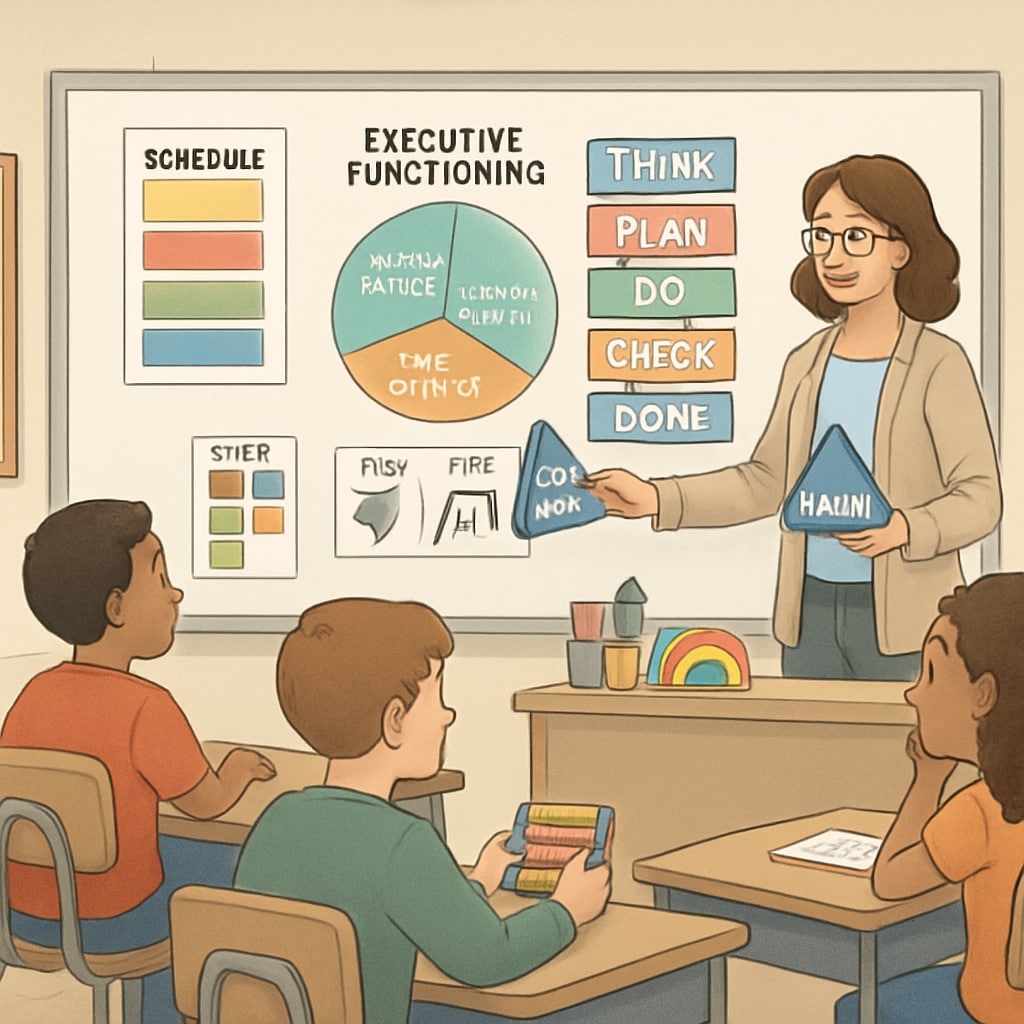For parents of children with ADHD, autism spectrum disorder (ASD), and other special needs, navigating the world of special education can be both challenging and rewarding. One critical area of focus is the development of executive function skills—an essential set of cognitive abilities that allow children to plan, organize, manage time, and regulate emotions. The 2023 Back-to-School Online Summit, now in its seventh year, is dedicated to providing parents with practical insights and actionable strategies to support their children’s growth in this area. This article explores the importance of executive function in special education and how parents can build a nurturing and effective support system with the help of expert guidance.
Why Executive Function Skills Matter for Special Needs Children
Executive function refers to a group of mental processes that enable goal-setting, decision-making, and self-regulation. For children with ADHD or ASD, these skills can be particularly difficult to master. Challenges in executive function may manifest as difficulty staying focused, managing daily tasks, or adapting to changes in routine. However, with the right support, children can make significant progress in these areas, improving their ability to thrive academically, socially, and emotionally.
Research has shown that executive function is closely tied to academic success and overall well-being. For example, children who develop strong time management and organizational skills are better equipped to handle schoolwork, extracurricular activities, and social interactions. Moreover, these skills lay the foundation for independence and resilience later in life. Learn more about executive function on Britannica.

Practical Strategies Shared at the 2023 Online Summit
The 2023 Back-to-School Online Summit is designed to empower parents with evidence-based strategies tailored to the unique needs of their children. Key topics covered include:
- Time Management: Techniques to help children break tasks into smaller, manageable steps and use visual schedules effectively.
- Emotional Regulation: Tools for teaching children how to recognize and cope with strong emotions.
- Task Initiation: Methods to encourage motivation and reduce procrastination.
- Parental Self-Care: Tips for maintaining your own well-being while supporting your child’s development.
By participating in the summit, parents gain access to a wealth of resources, including workshops led by psychologists, educators, and occupational therapists. These experts provide actionable advice and case studies to illustrate how executive function support can be tailored to individual needs.

Building a Supportive Network for Long-Term Success
One of the key takeaways from the summit is the importance of collaboration. Parents are encouraged to work closely with teachers, therapists, and other caregivers to create a consistent and supportive environment for their children. For example, parents can share strategies learned at the summit with educators, ensuring that approaches to executive function development are reinforced both at home and in the classroom.
Additionally, the summit emphasizes the role of community. Connecting with other parents of special needs children can provide emotional support, practical advice, and a sense of solidarity. Online forums, local support groups, and continuing education events are excellent avenues for building these connections.
Investing in the development of executive function skills is not just about academic performance—it’s about empowering children to navigate life’s complexities with confidence. With the right tools and a strong support system, parents can help their children reach their full potential.
For more information about executive function and strategies for supporting special needs children, visit Executive Functions on Wikipedia.
Readability guidance: The article uses short paragraphs, clear subheadings, and bulleted lists to enhance readability. It avoids excessive passive voice and maintains a professional yet approachable tone.


